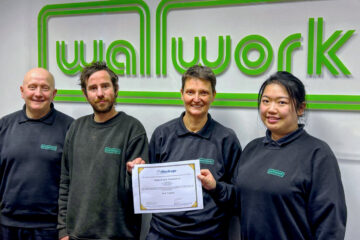New Vacuum Carburise Furnace for Motorsport
Investing to Expand Capacity
To support rising demand from motorsport suppliers, including F1 engine and transmission components, Wallwork Heat Treatment has invested in a cutting-edge vacuum carburising furnace at its Greater Manchester facility. Despite COVID challenges, this major investment boosts the group’s UK vacuum furnace total to 29, enabling daily processing of over 40 tons of components.
Wallwork director, Simeon Collins, explains, “Motor racing is a punishing environment for metal components. These parts are expensive to manufacture and subject to immense forces. Speed is king but reliability is just as important. Component failure equals failure to finish and can be dangerous. The sector is characterised by rapid development cycles and relies upon equally experienced and responsive heat treatment services.”
Overview
Vacuum carburising excels at treating machined components with holes by pulsing gas pressure, ensuring consistent gas flow and uniform heat treatment throughout the process. Advanced machining methods create precision motor sport components, and while heat treatment can cause distortion, the new furnace’s controlled cooling minimizes this effect. The vacuum chamber ensures a high-quality finish and faster processing due to higher carburising temperatures, while also eliminating the need for post-treatment cleaning. Once the desired hardness is achieved, the furnace can replicate the process for consistent results. Wallwork’s in-house experts can collaborate with designers at the development stage, optimizing designs for enhanced heat treatment outcomes.
Advanced machining methods make motor sport components to extremely fine tolerances. Any heat treatment process can cause component distortion, especially as the part is quenched (cooled), the new furnace excels at controlled cooling. As the process takes place in a vacuum chamber the component finish is excellent and takes less time due to the ability to apply higher carburising temperatures. Another time saving benefit is the elimination of the need for component post process cleaning.
Simeon concluded, “With a dedicated commercial pick-up and delivery fleet of over 50 vehicles, operating from five UK locations, we are ideally placed to provide a nationwide service to meet the rapid development cycles of the motor sport engineering sector. The affordability of the vacuum carburising process means it is not just for the big race teams. Self-funded privateers and smaller teams can also benefit from heat treating components and, if required, Wallwork can go a stage further and apply advance coatings for even greater part performance on track. The UK has a vibrant and world-envied position in engineering for motorsport and everyone wants winning reliability.”


